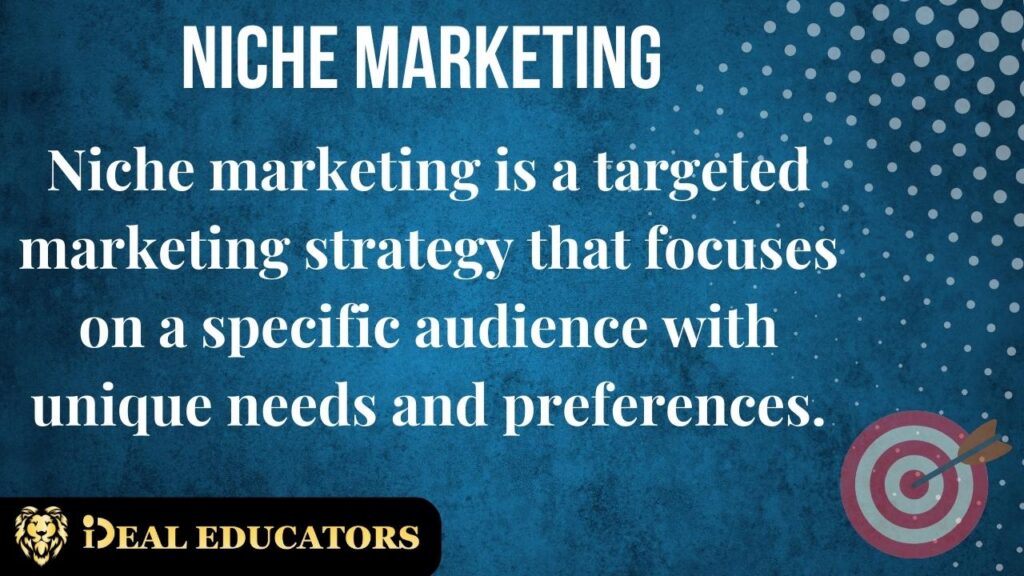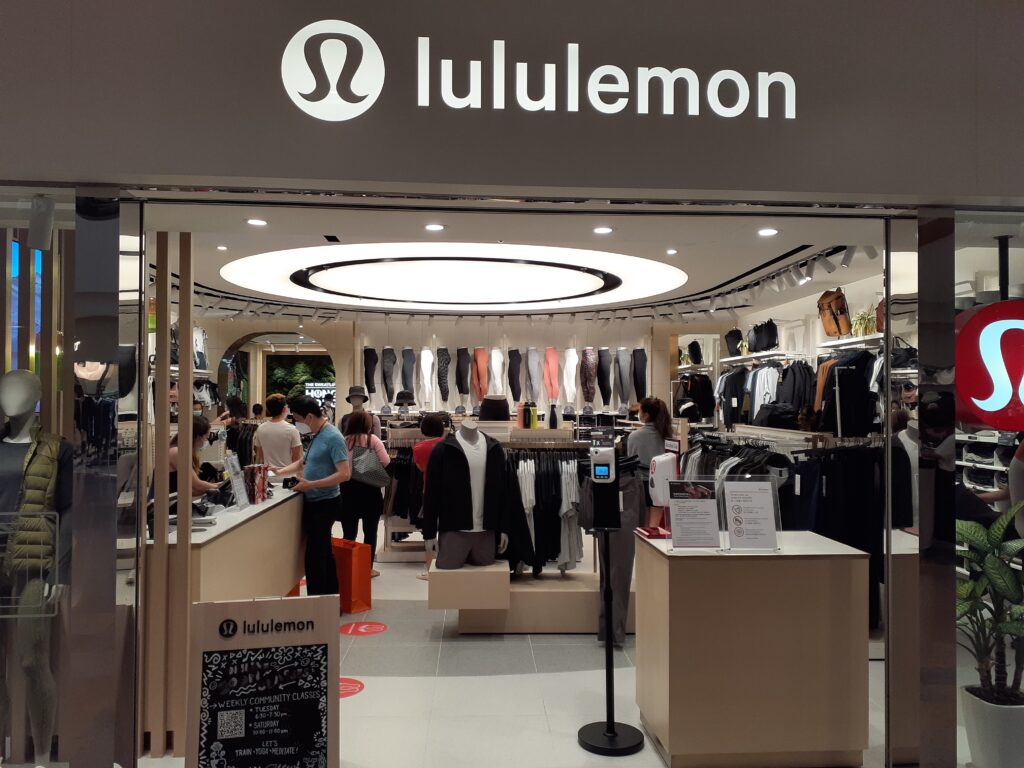What is Niche Marketing

In the ever-evolving world of business, it’s no secret that having a niche marketing strategy can be a game-changer for businesses. Niche marketing is a strategy that targets a specific audience or market segment. This approach is becoming increasingly popular among businesses because it allows them to tailor their products or services to a smaller, more defined target market. In this blog, we’ll explore the importance, advantages, and disadvantages of niche marketing, as well as some real-life examples of businesses that have successfully implemented this strategy.
Importance of Niche Marketing
One of the primary reasons niche marketing is important is that it helps businesses stand out in a crowded market. When a business tries to appeal to everyone, it can be challenging to establish a strong brand identity and differentiate themselves from competitors. By targeting a specific audience, businesses can develop a brand identity that speaks directly to the needs and preferences of their target market. This can help them stand out in a crowded market and attract more customers. By targeting a specific audience, businesses can differentiate themselves from their competitors and establish a unique selling proposition. This approach also allows businesses to focus their marketing efforts on a smaller, more defined group of customers, making it easier to reach them through targeted messaging and advertising.
Advantages of Niche Marketing
- Increased Customer Loyalty: One of the primary benefits of niche marketing is that it allows businesses to develop a deep understanding of their target audience. By understanding the unique needs and wants of their customers, businesses can create products or services that cater to those needs. When customers feel that a business truly understands their needs and provides them with a solution that meets those needs, they are more likely to develop a strong sense of loyalty to that business. This loyalty can translate into repeat business, positive word-of-mouth advertising, and increased customer lifetime value.
- Lower Competition: Niche markets are often underserved, which means that there is less competition for businesses that target them. By focusing on a specific audience, businesses can differentiate themselves from their competitors and establish themselves as a leader in their industry. This can lead to higher market share and increased profitability.
- Higher Profit Margins: Businesses that target niche markets often have the ability to command higher prices for their products or services. This is because customers in niche markets are often willing to pay a premium for products or services that meet their specific needs. As a result, businesses that target niche markets can achieve higher profit margins than those that operate in more general markets.
Disadvantages of Niche Marketing
- Limited Market Size: One of the potential downsides of niche marketing is that it can limit a business’s potential customer base. By focusing on a specific audience, businesses may miss out on potential customers who do not fit within their target demographic. This can result in a smaller overall market size, which may limit growth potential.
- Higher Marketing Costs: Niche marketing can be more expensive than broad-based marketing strategies. This is because businesses must create highly targeted messaging and advertising to reach their specific audience. These targeted campaigns may require more research and development, and may also require more specialized advertising channels, which can be more expensive than broad-based channels.
- Limited Growth Potential: Businesses that focus solely on a niche market may experience limited growth potential in the long term. This is because niche markets are often small and may have limited room for expansion. Additionally, as the market becomes more saturated, businesses may find it increasingly difficult to attract new customers and maintain market share.
Real-Life Examples of Successfully Implementing Niche Marketing

Ray-Ban is an iconic eyewear brand that has successfully implemented a niche marketing strategy. Originally designed for pilots, Ray-Ban’s aviator sunglasses became popular with military personnel and then later with Hollywood celebrities, which helped to establish the brand’s identity and unique selling proposition.
In recent years, Ray-Ban has continued to target a niche audience of fashion-conscious individuals who are willing to pay a premium for high-quality, stylish eyewear. The company has launched several successful marketing campaigns that focus on the brand’s heritage and iconic status, while also appealing to the specific needs and preferences of its target audience.
One such campaign is the “Never Hide” campaign, which celebrates individuality and self-expression. The campaign features a series of videos and advertisements that showcase real people wearing Ray-Ban sunglasses in their everyday lives. By highlighting the brand’s connection to individuality and self-expression, Ray-Ban has been able to appeal to its niche audience and establish a loyal following.
Ray-Ban has also leveraged social media to reach its target audience, using platforms like Instagram and Facebook to showcase its products and connect with customers. By creating targeted social media campaigns and engaging with customers directly, Ray-Ban has been able to build a strong brand community and maintain its position as a leader in the eyewear industry.

Gillette is a well-known brand that has successfully implemented a niche marketing strategy. The brand has identified a specific audience, which is men who are looking for high-quality shaving products. Gillette has built a reputation for being a trusted brand in the shaving industry and has established a unique selling proposition by offering products that cater to the specific needs of their target audience.
One of Gillette’s successful niche marketing campaigns is the “The Best a Man Can Get” campaign, which was launched in 1989. The campaign aimed to target men who were looking for a premium shaving experience. The campaign was highly successful, and it helped Gillette establish itself as a market leader in the shaving industry.
Gillette also offers a wide range of products that cater to different shaving needs, such as sensitive skin and beard trimming. This approach has helped the brand establish a loyal customer base that trusts the quality and effectiveness of their products.
Overall, Gillette’s niche marketing strategy has helped the brand differentiate itself from competitors, establish a strong brand identity, and build a loyal customer base.

Lululemon is a prime example of a company that has successfully implemented a niche marketing strategy. The brand specializes in high-quality, fashionable athletic wear for women, targeting a specific audience that values both style and functionality in their workout clothing.
By catering to the unique needs and preferences of this audience, Lululemon has established itself as a leading brand in the athleisure market. Their focus on quality and style has resonated with their target audience, leading to a strong brand reputation and customer loyalty.
In addition to their clothing line, Lululemon has expanded into other areas of the wellness industry such as yoga studios and wellness retreats. This expansion into related markets has helped the brand continue to grow and thrive within its niche.
Overall, Lululemon’s success can be attributed to its deep understanding of its target audience and its ability to provide high-quality products and services that meet the unique needs and wants of that audience. This is a prime example of how niche marketing can be a powerful strategy for businesses looking to establish themselves as leaders in a specific industry or market segment.
Conclusion
Niche marketing is a strategy that can help businesses differentiate themselves from competitors, establish a unique selling proposition, and target a specific audience. While it has its advantages and disadvantages, businesses that successfully implement this strategy can achieve increased customer loyalty, higher profit margins, and a competitive advantage in their industry.
Disclaimer
This blog post is written and verified by Mr. Shayan and the Business team at Ideal Educators.
Ideal Educators is a renowned non-profit educational organization offering a wide range of services, including Business and Economics tutoring, Teacher training, Leadership training, Business consultancy, Immigration and Educational advice and consultation (affiliated with registered organizations), and IELTS tutoring.
Mr. Shayan is a successful entrepreneur, accomplished author, expert business coach, economist, and qualified educator, leading several businesses with excellence.
